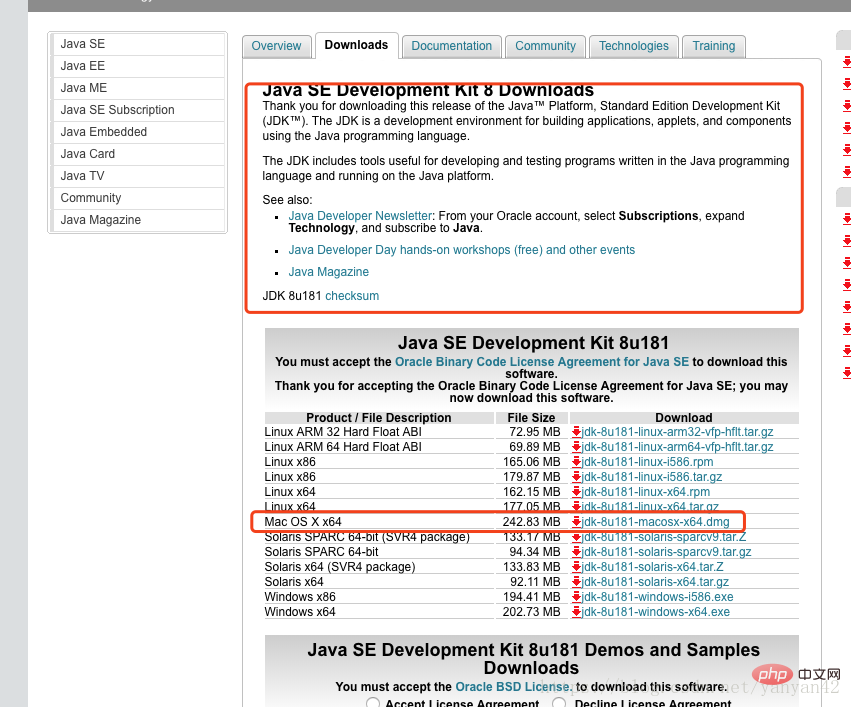
Comment installer l'extension zookeeper en PHP : téléchargez d'abord zookeeper ; puis spécifiez le répertoire d'installation ; enfin installez zookeeper via "make && make install".

L'environnement d'exploitation de cet article : système Windows 7, PHP7.1, ordinateur Dell G3.
ZooKeeper est un service de coordination d'applications distribuées et open source. Il s'agit d'une implémentation open source de Chubby de Google et d'un composant important de Hadoop et Hbase. Il s'agit d'un logiciel qui fournit des services cohérents pour les applications distribuées. Les fonctions fournies incluent : la maintenance de la configuration, les services de noms de domaine, la synchronisation distribuée, les services de groupe, etc.
L'objectif de ZooKeeper est d'encapsuler des services clés complexes et sujets aux erreurs et de fournir aux utilisateurs des interfaces simples et faciles à utiliser ainsi qu'un système doté de performances efficaces et de fonctions stables.
Pour utiliser zookeeper en php, vous devez d'abord installer l'extension php zookeeper
Télécharger. ici La dernière version stable
http://mirror.bit.edu.cn/apache/zookeeper/stable/
cd /download
wget http://mirror .bit.edu.cn/apache/zookeeper/stable/zookeeper-3.4.12.tar.gz //Il s'agit d'un outil qui a été installé. Nous devons maintenant le compiler et l'installer nous-mêmes, car il sera utilisé lors de l'installation. Extensions PHP plus tard
tar -zxvf zookeeper-3.4.12.tar.gz
cd zookeeper-3.4.12/src/c/
./configure -- prefix=/usr /local/zookeeper //Spécifiez le répertoire d'installation
make && make install
L'installation est terminée
2 Installez l'extension php zookeeper sur http : //pecl. Trouvez
cd /download
wget http://pecl.php.net/get/zookeeper-0.6.2.tgz
dans php.net /package/zookeeper tar -zxvf zookeeper-0.6.2.tgz
cd zookeeper-0.6.2
./configure --with-libzookeeper-dir=/usr/local/zookeeper / /Spécifier les dépendances
make && make install
Configurer php.ini
extension="/usr/local/Cellar/php/7.2.6/pecl/20170718/zookeeper .so"
Redémarrez simplement php-fpm.
[Recommandé : "
Tutoriel vidéo PHP"]3. Installez jdk avant de démarrer zookeeper. S'il est déjà installé, vous pouvez l'ignorer
sur http:/ Téléchargez depuis /www.oracle.com/technetwork/java/javase/downloads/jdk8-downloads-2133151.html puis installez-le comme un imbécile, je n'entrerai pas dans les détails ici
./zkCli.sh -server 127.0.0.1:2181
cd ../conf
5. Test de code PHPCode de test
<?php
/**
*
*/
class zookeeperDemo
{
private $zookeeper;
function __construct($address)
{
$this->zookeeper = new Zookeeper($address);
}
/*
* get
*/
public function get($path)
{
if (!$this->zookeeper->exists($path)) {
return null;
}
return $this->zookeeper->get($path);
}
public function getChildren($path) {
if (strlen($path) > 1 && preg_match('@/$@', $path)) {
// remove trailing /
$path = substr($path, 0, -1);
}
return $this->zookeeper->getChildren($path);
}
/*
* set 值
*
*
*/
public function set($path, $value)
{
if (!$this->zookeeper->exists($path)) {
//创建节点
$this->makePath($path);
} else {
$this->zookeeper->set($path,$value);
}
}
/*
* 创建路径
*/
private function makePath($path, $value='')
{
$parts = explode('/', $path);
$parts = array_filter($parts);//过滤空值
$subPath = '';
while (count($parts) > 1) {
$subPath .= '/' . array_shift($parts);//数组第一个元素弹出数组
if (!$this->zookeeper->exists($subpath)) {
$this->makeNode($subPath, $value);
}
}
}
/*
* 创建节点
*
*/
private function makeNode($path, $value, array $params = array())
{
if (empty($params)) {
$params = [
[
'perms' => Zookeeper::PERM_ALL,
'scheme' => 'world',
'id' => 'anyone'
]
];
}
return $this->zookeeper->create($path, $value, $params);
}
/*
* 删除
**/
public function deleteNode($path)
{
if (!$this->zookeeper->exists($path)) {
return null;
} else {
return $this->zookeeper->delete($path);
}
}
}
$zk = new zookeeperDemo('localhost:2181');
//var_dump($zk->get('/zookeeper'));
var_dump($zk->getChildren('/foo'));
//var_dump($zk->deleteNode("/foo"));
?>
测试代码2、
<?php
/**
* PHP Zookeeper
*
* PHP Version 5.3
*
* The PHP License, version 3.01
*
* @category Libraries
* @package PHP-Zookeeper
* @author Lorenzo Alberton <l.alberton@quipo.it>
* @copyright 2012 PHP Group
* @license http://www.php.net/license The PHP License, version 3.01
* @link https://github.com/andreiz/php-zookeeper
*/
/**
* Example interaction with the PHP Zookeeper extension
*
* @category Libraries
* @package PHP-Zookeeper
* @author Lorenzo Alberton <l.alberton@quipo.it>
* @copyright 2012 PHP Group
* @license http://www.php.net/license The PHP License, version 3.01
* @link https://github.com/andreiz/php-zookeeper
*/
class Zookeeper_Example
{
/**
* @var Zookeeper
*/
private $zookeeper;
/**
* @var Callback container
*/
private $callback = array();
/**
* Constructor
*
* @param string $address CSV list of host:port values (e.g. "host1:2181,host2:2181")
*/
public function __construct($address) {
$this->zookeeper = new Zookeeper($address);
}
/**
* Set a node to a value. If the node doesn't exist yet, it is created.
* Existing values of the node are overwritten
*
* @param string $path The path to the node
* @param mixed $value The new value for the node
*
* @return mixed previous value if set, or null
*/
public function set($path, $value) {
if (!$this->zookeeper->exists($path)) {
$this->makePath($path);
$this->makeNode($path, $value);
} else {
$this->zookeeper->set($path, $value);
}
}
/**
* Equivalent of "mkdir -p" on ZooKeeper
*
* @param string $path The path to the node
* @param string $value The value to assign to each new node along the path
*
* @return bool
*/
public function makePath($path, $value = '') {
$parts = explode('/', $path);
$parts = array_filter($parts);
$subpath = '';
while (count($parts) > 1) {
$subpath .= '/' . array_shift($parts);
if (!$this->zookeeper->exists($subpath)) {
$this->makeNode($subpath, $value);
}
}
}
/**
* Create a node on ZooKeeper at the given path
*
* @param string $path The path to the node
* @param string $value The value to assign to the new node
* @param array $params Optional parameters for the Zookeeper node.
* By default, a public node is created
*
* @return string the path to the newly created node or null on failure
*/
public function makeNode($path, $value, array $params = array()) {
if (empty($params)) {
$params = array(
array(
'perms' => Zookeeper::PERM_ALL,
'scheme' => 'world',
'id' => 'anyone',
)
);
}
return $this->zookeeper->create($path, $value, $params);
}
/**
* Get the value for the node
*
* @param string $path the path to the node
*
* @return string|null
*/
public function get($path) {
if (!$this->zookeeper->exists($path)) {
return null;
}
return $this->zookeeper->get($path);
}
/**
* List the children of the given path, i.e. the name of the directories
* within the current node, if any
*
* @param string $path the path to the node
*
* @return array the subpaths within the given node
*/
public function getChildren($path) {
if (strlen($path) > 1 && preg_match('@/$@', $path)) {
// remove trailing /
$path = substr($path, 0, -1);
}
return $this->zookeeper->getChildren($path);
}
/**
* Delete the node if it does not have any children
*
* @param string $path the path to the node
*
* @return true if node is deleted else null
*/
public function deleteNode($path)
{
if(!$this->zookeeper->exists($path))
{
return null;
}
else
{
return $this->zookeeper->delete($path);
}
}
/**
* Wath a given path
* @param string $path the path to node
* @param callable $callback callback function
* @return string|null
*/
public function watch($path, $callback)
{
if (!is_callable($callback)) {
return null;
}
if ($this->zookeeper->exists($path)) {
if (!isset($this->callback[$path])) {
$this->callback[$path] = array();
}
if (!in_array($callback, $this->callback[$path])) {
$this->callback[$path][] = $callback;
return $this->zookeeper->get($path, array($this, 'watchCallback'));
}
}
}
/**
* Wath event callback warper
* @param int $event_type
* @param int $stat
* @param string $path
* @return the return of the callback or null
*/
public function watchCallback($event_type, $stat, $path)
{
if (!isset($this->callback[$path])) {
return null;
}
foreach ($this->callback[$path] as $callback) {
$this->zookeeper->get($path, array($this, 'watchCallback'));
return call_user_func($callback);
}
}
/**
* Delete watch callback on a node, delete all callback when $callback is null
* @param string $path
* @param callable $callback
* @return boolean|NULL
*/
public function cancelWatch($path, $callback = null)
{
if (isset($this->callback[$path])) {
if (empty($callback)) {
unset($this->callback[$path]);
$this->zookeeper->get($path); //reset the callback
return true;
} else {
$key = array_search($callback, $this->callback[$path]);
if ($key !== false) {
unset($this->callback[$path][$key]);
return true;
} else {
return null;
}
}
} else {
return null;
}
}
}
$zk = new Zookeeper_Example('localhost:2181');
// var_dump($zk->get('/'));
// var_dump($zk->getChildren('/'));
// var_dump($zk->set('/test', 'abc'));
// var_dump($zk->get('/test'));
// var_dump($zk->getChildren('/'));
// var_dump($zk->set('/foo/001', 'bar1'));
// var_dump($zk->set('/foo/002', 'bar2'));
// var_dump($zk->get('/'));
// var_dump($zk->getChildren('/'));
// var_dump($zk->getChildren('/foo'));
//watch example 一旦/test节点的值被改变,就会调用一次callback
function callback() {
echo "in watch callback\n";
}
//$zk->set('/test', 1);
$ret = $zk->watch('/test', 'callback');
//$zk->set('/test', 2);//在终端执行
while (true) {
sleep(1);
}
/*
class ZookeeperDemo extends Zookeeper {
public function watcher( $i, $type, $key ) {
echo "Insider Watcher\n";
// Watcher gets consumed so we need to set a new one
//ZooKeeper提供了可以绑定在znode的监视器。如果监视器发现znode发生变化,该service会立即通知所有相关的客户端。这就是PH//P脚本如何知道变化的。Zookeeper::get方法的第二个参数是回调函数。当触发事件时,监视器会被消费掉,所以我们需要在回调函
//数中再次设置监视器。
$this->get( '/test', array($this, 'watcher' ) );
}
}
$zoo = new ZookeeperDemo('127.0.0.1:2181');
$zoo->get( '/test', array($zoo, 'watcher' ) );
while( true ) {
echo '.';
sleep(2);
}
*/
/*
// $zc = new Zookeeper();
// $zc->connect('127.0.0.1:2181');
// var_dump($zc->get('/zookeeper'));
// exit;
*/
?>Ce qui précède est le contenu détaillé de. pour plus d'informations, suivez d'autres articles connexes sur le site Web de PHP en chinois!
 Quelle est la différence entre Dubbo et Zookeeper
Quelle est la différence entre Dubbo et Zookeeper
 La différence entre Linux et Windows
La différence entre Linux et Windows
 Que signifie la commande rm-rf sous Linux ?
Que signifie la commande rm-rf sous Linux ?
 Connaissances nécessaires pour le front-end Web
Connaissances nécessaires pour le front-end Web
 Comment activer le service de connexion secondaire
Comment activer le service de connexion secondaire
 Utilisation de la fonction MySQL dateiff
Utilisation de la fonction MySQL dateiff
 numéro de série d'installation pscs5
numéro de série d'installation pscs5
 Quels sont les serveurs web ?
Quels sont les serveurs web ?